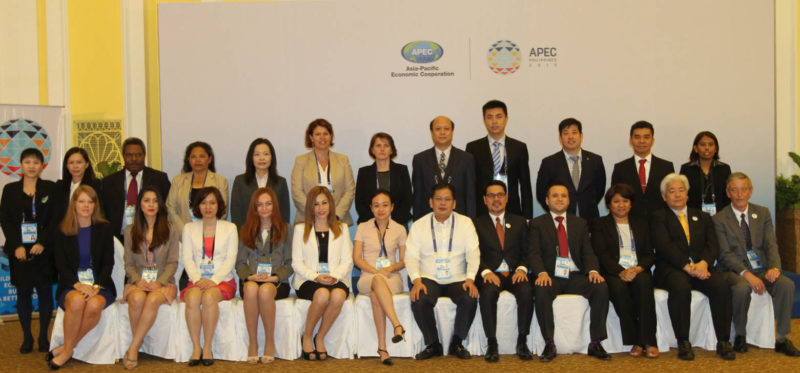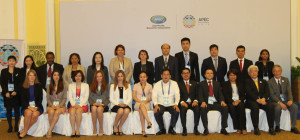

Asia-Pacific regional economic integration can only be deepened if leaders and government agencies carry out their part efficiently, according to Customs Commissioner John Phillip Sevilla.
In a speech during the Asia-Pacific Economic Cooperation (APEC) Senior Officials Meeting 1 Sub-Committee on Customs Procedures (SCCP) on January 27, Sevilla said this year’s general theme of “Building Inclusive Economies and Building a Better World” “sounds nice,” but added that what is crucial is to know how to “actually put this into practice.”
Sevilla said the SCCP has two priorities relevant to achieving this theme. The first is to enhance regional economic integration, which he said can “only take place, and deepen, if we in the Sub-Committee, and our respective governments, do our jobs ever more efficiently.
“Otherwise, the increase in trade flows and the realization of the benefits of economic integration simply will not happen.”
The second priority, Sevilla said, is for APEC countries, particularly the Philippines, to “recognize that small and medium enterprises in many, if not all, of our countries face particular challenges in dealing with Customs procedures.
“We can and should make the extra effort to ensure that small businesses are not excluded from the benefits of integration, and we can do that by adopting policies and procedures that are friendly to small and medium enterprises.”
The Customs chief noted the Bureau of Customs (BOC) is in the midst of important reforms “which will move us ever closer to a paperless trading environment.”
By the end of 2015, Sevilla said BOC will launch the Integrated Enhanced Customs Processing System (IECPS) and the Philippine National Single Window (NSW) Phase 2 Project.
The IECPS is a portal to comprehensive trade information for traders, while the NSW is a single gateway through which traders can access all information necessary to comply with import, export, and transit arrangements to ensure informed and diligent compliance with customs practices and procedures.
The IECPS and NSW Phase 2 are undergoing bidding. One bidder has reportedly been shortlisted and is undergoing technical evaluation.
By the end of 2015, Sevilla said they expect to reduce the customs clearance process for imports to an average of four hours.
This year’s APEC event is hosted by the Philippines and has four priorities: investing in human capital development, fostering SMEs’ participation in the regional and global economy, building sustainable and resilient communities, and enhancing the regional economic integration agenda.
APEC aims to achieve a 10% increase in the region’s supply chain performance by 2015 and reduce customs-related bottlenecks.
In the Philippines, BOC is considering setting up a green lane for products with only 1% tariff to facilitate ease of entry, according to APEC. – Roumina Pablo




